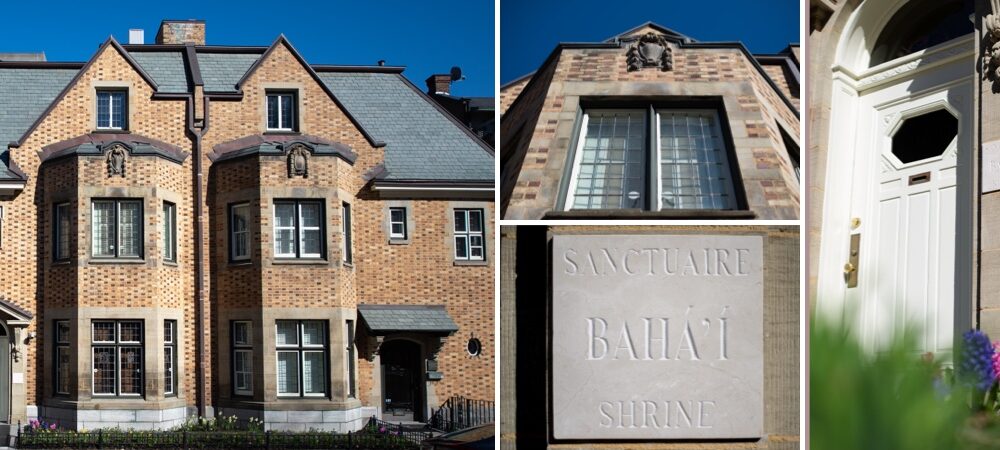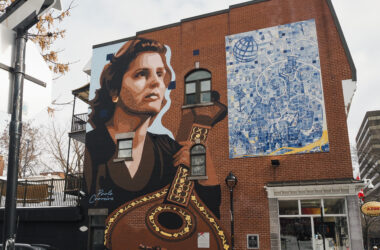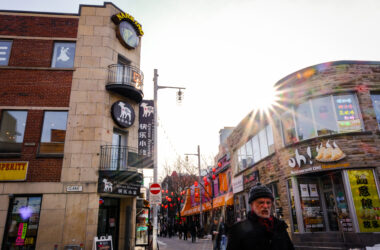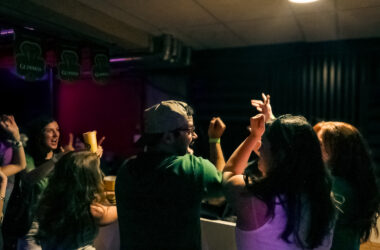In the late summer of 1912, a highly anticipated visit to the Montreal Baha’i Shrine, formerly the Maxwell home, located at 1548 Avenue des Pins, made anglophone and francophone headlines all across Montreal. Articles titled “Persian Teacher to Preach Peace” and “Apostle of Peace Meet Socialists” could be found across Montreal publications. Over a hundred years later, the Maxwell home stands as the sole shrine of the Baha’i faith outside of the Middle East. And it’s just a 12-minute walk away from McGill’s Law Library.
I was eager to learn more about the Baha’i faith from my first introduction to its principles. Rather than being practised through a complex set of rites administered by clergy, the religion places human unity at its centre; it is a highly personal practice, a conversation between the soul and God.
“Central to the faith is the duty of independently investigating the truth,” Shidan Javaheri, a U2 Engineering student at McGill who grew up in a Baha’i family in Lusaka, Zambia, told me.
He explained that he decided to become Baha’i at age 15, after the teachings of the faith resonated with him. This notion of religious choice at such an early age was almost as shocking to me as a Roman Catholic as was hearing that Baha’is do not practice confession. Indeed, the confession of sin is forbidden and individuals are encouraged to seek repentance directly with God. At this point in our interview, I started to wish I had heard about this religion sooner—it would have saved me years of Catholic guilt.
The shrine became a holy site of the Baha’i faith after the 1912 visit of Abdu’l Bahá, one of the three central figures of the faith. The home was owned by May and Sutherland Maxwell, one of the earliest Baha’is in Montreal and one of Canada’s most renowned architects, respectively. Montreal was the only Canadian city Abdu’l Bahá visited during his voyages to the West to spread the Baha’i faith, but this alone was not enough to cement the Maxwell home as a shrine. It was only when Abdu’l Bahá’s declared “this is my home” upon first entering the house that the building could assume sacred status as a shrine. Indeed, Baha’is consider the homes of sacred religious figures as shrines. The Maxwell home became symbolic of the religion’s reach into the West. The Maxwell house is the only Baha’i shrine situated outside of the Middle East.
Maziar Djoneidi, member of the shrine’s Board of Directors, explained that “the shrine is a space for spiritual refreshment, not just for Baha’is but for people of any religion, or no religion at all.”
They are open two days a week for visits, and receive up to 50 people per day in the summer. So as a McGill student, no matter your faith, or lack thereof, you are welcome at the Baha’i shrine of Montreal for a moment of peaceful reflection.
“It is open to anyone who wants a moment alone with a higher power,” Javaheri told me.
If you don’t want to make the effort to walk up des Pins, you can still learn more about the faith on campus. Although it is not operating through SSMU as a student club, Baha’i students work with McGill’s Office of Religious and Spiritual Life and recently hosted both a panel on their faith and a visit to the Shrine.
If you want to visit the shrine, you can book your slot online. You can also contact the shrine at [email protected], and, if you are interested in learning more about the McGill Baha’is’ activities, you can reach out to [email protected].









